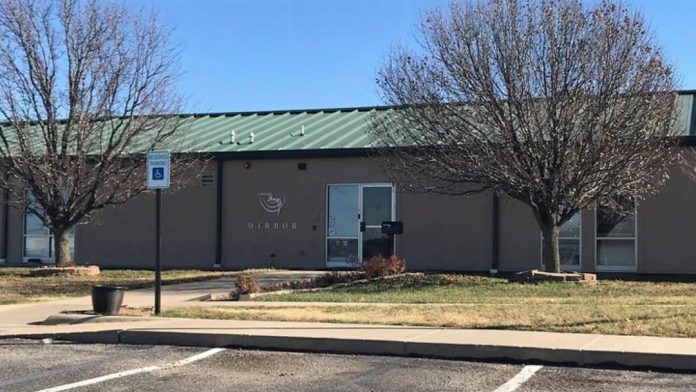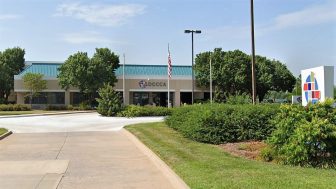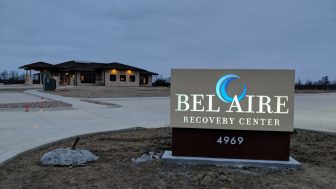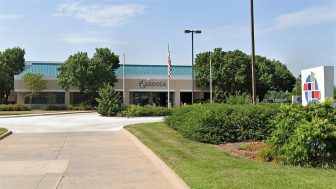Mirror, Inc – Reflections Recovery Center (Adult and Adolescent Males)
3820 N Toben St
Wichita, KS 67226

About Mirror, Inc – Reflections Recovery Center (Adult and Adolescent Males)
Mirror Reflections Recovery Center of Wichita in Wichita, Kansas, offers inpatient treatment for adolescent and adult males who are struggling with substance use disorders. Some of the services they offer here include medical detox, clinical assessments, medication-assisted treatment (MAT), aftercare planning, group therapy and individual counseling. They accept Medicaid insurance.
Their adult residential unit is designed to help you stabilize before returning home or entering into another level of care. They’ll walk you through all of the things you need to achieve a healthy and thriving life in sobriety, giving you tools to heal emotionally, physically and behaviorally. You’ll learn relapse prevention techniques and basic life skills that will promote independence and overall wellness.
A unique aspect of their residential treatment is the Reintegration Program. If you enter this program, you’ll receive around-the-clock care and participate in activities that reinforce concepts of self-regulation and behavior management.
They also have a separate, age-specific residential unit for adolescent males. There’s only one other facility that offers this program in the entire state of Kansas. If you’re a local teen between the ages of 16 and 17, you can go here to receive care and recovery support. They also support family members who are helping their child pursue addiction treatment. I like that they keep their caseloads small so they can conduct individual, group and family therapy in intimate settings.
When you graduate from this program, there’s lots to explore in and around Witchita. In addition to a vibrant downtown district, the city also boasts a robust scientific and technological scene. Recognized as the Air Capital of the World, it’s home to many aerospace manufacturers and several universities. It’s also a wonderfully affordable city, should you choose to put down roots after your treatment is complete.
Amenities
Private drug rehab provides a comfortable, secure environment that allows you to focus on doing the work to get your life back on track. Benefits include a higher staff-to-client ratio, increased one-on-one time with therapists and healthcare providers, private rooms for clients, and customized forms of therapy.
Residential drug rehab provides the comforts of home with the therapeutic support needed to successfully recover. Benefits of an inpatient program include increased safety, a higher success rate, and the time and distance given to focus on recovery. Residential drug rehabs are often the preferred method of treatment, as they can be tailored to meet specific needs, offer focused therapeutic care, and provide the necessary tools to sustain recovery.
In order to maintain a sense of autonomy, many private rehab facilities offer clients the ability to choose their own private rooms. The privacy and personal space ensure that the recovery process is as comfortable as possible.
Addiction Treatment Programs
Treatment plans at a young adult program in Kansas typically encompass counseling for addiction as well as co-occurring mental health disorders. Young adults who are struggling with anxiety, depression, PTSD, or ADHD can get help for these disorders as well as substance use disorders.
When an individual needs help with an addiction, they can find support at an adult program in Kansas. These treatment programs offer recovery services for men and women ages 18 and older.
Alcohol rehab in Kansas helps individuals who are struggling with alcohol use disorder learn about recovery, its benefits, and how to achieve it. Treatment focuses on motivation to change, skills to accomplish change, and how to maintain long-term success with sobriety.
Often, men’s rehab in Kansas offers treatment for substance use disorders as well as dual diagnosis treatment. These programs can help men who are facing PTSD, ADHD, depression, anxiety, and bipolar disorder.
Women’s rehab in Kansas provides gender-specific treatment and allows participants to connect with other women who understand their challenges. This targeted support can be beneficial for long-term recovery.
The most common types of opioid rehab in Kansas are detox, inpatient, intensive outpatient, and support groups. Each use evidence-based therapies to teach strategies for overcoming addiction and maintaining long-term sobriety.
People often benefit from cognitive behavioral therapy in Kansas, as it teaches techniques for coping with negative thoughts, challenging emotions, and triggers. These exercises can be practiced on their own, so people in recovery have effective tools to maintain their sobriety.
No single drug rehab in Kansas is right for everyone. Length, intensity, setting, and treatment methods vary. These can be tailored to meet each person’s needs. With the right program, individuals can successfully end their drug dependency and achieve long-term recovery.
Rational emotive behavioral therapy in Kansas focuses on the present moment rather than the past. It is action-oriented, helping the individual identify and replace maladaptive beliefs that are contributing to substance use and addiction.
Levels of Care
Kansas outpatient rehab often includes several types of therapy, such as group, individual, and family. You’ll attend several sessions per week, learning new skills and how to live a sober lifestyle. This treatment will continue for weeks, months, or even years, depending on your ongoing recovery needs.
A dual diagnosis treatment program in Kansas is best suited to meet the needs of those who have co-occurring disorders. If you suffer from anxiety, mood disorder, depression, or ADHD alongside addiction, dual diagnosis treatment will effectively treat both disorders.
Once you’ve completed early phases of treatment, aftercare rehab in Kansas provides continued support. As you begin to face challenges of everyday life, this program gives you the tools you need to meet them. Ongoing counseling, support groups, and financial guidance are common aspects of aftercare, which may continue for a year or more after initial treatment.
Inpatient rehab in Kansas involves participation in group, individual, and other types of therapy in a medically supervised setting. Treatment may also include medication management and holistic therapies. It requires living at the drug rehab for the duration of treatment.
Drug rehab in Kansas typically begins with detox. This process can last up to a week. During that time, you’ll receive 24/7 supervision and medical assistance to cleanse your body of all addictive substances.
As a bridge between rehab and independent living, sober living in Kansas typically lasts five to eight months. However, you can decide when you’re ready to move to the next step in your recovery journey. While in this setting, you’ll reside with others in recovery at a private home, adhering to house rules and attending 12-step meetings.
Accreditations
Accepted Insurance








